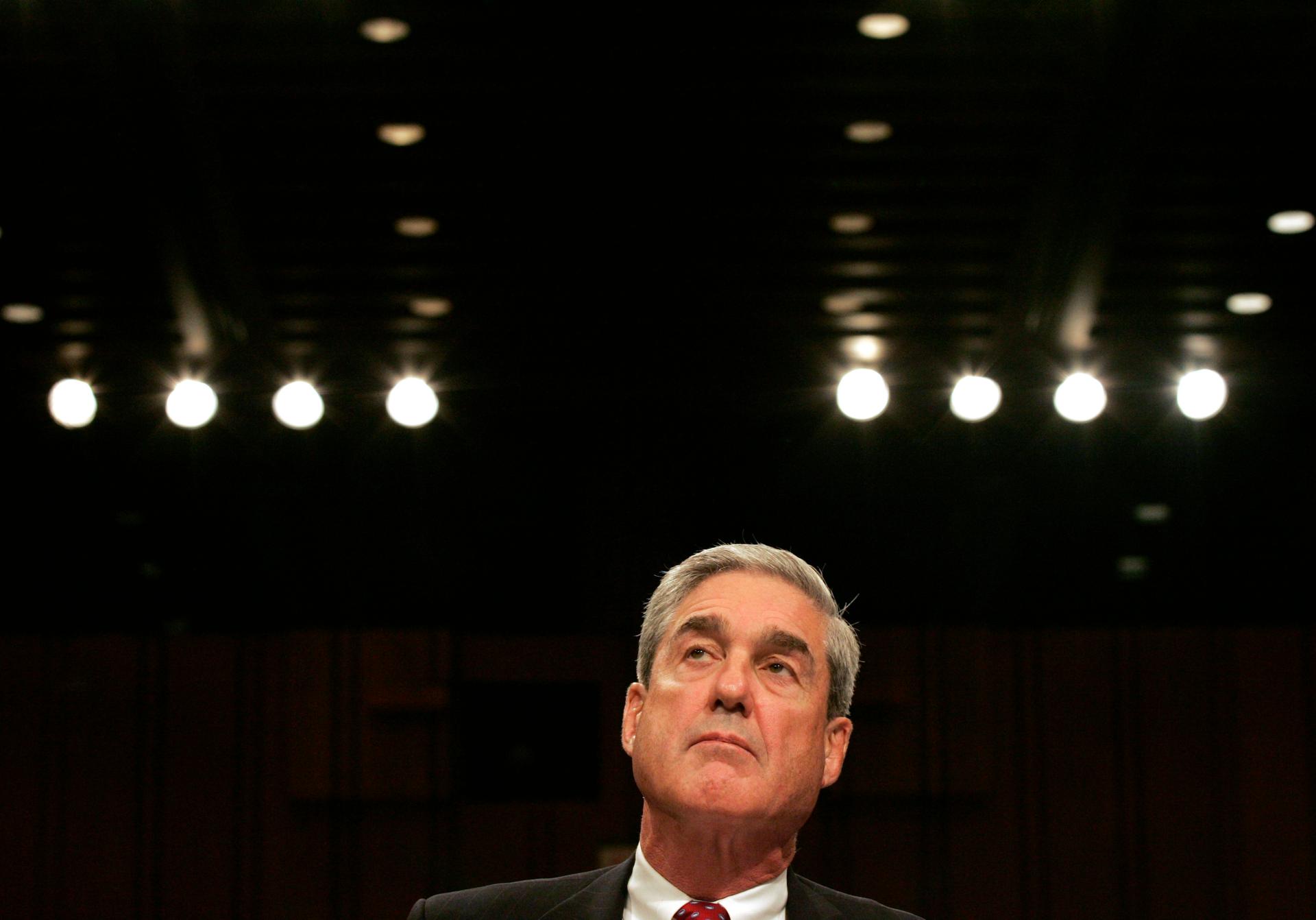FBI Director Robert Mueller listens to questioning while testifying before the Senate Judiciary Committee hearing on "Oversight of the Federal Bureau of Investigation (FBI)," on Capitol Hill in Washington September 17, 2008.
The special counsel overseeing the investigation into Russia’s role in the 2016 election is interviewing three senior intelligence officials to determine whether President Donald Trump obstructed justice.
The Washington Post first reported that Robert Mueller wanted to question Dan Coats, the director of national intelligence; Adm. Michael S. Rogers, the head of the National Security Agency; and Richard Ledgett, the former deputy director of the NSA.
It’s a shift in the FBI investigation, which previously focused on Russian hacking during the election, possible coordination between the Trump campaign and Russian officials, and possible financial crimes by Trump associates.
FBI Director James Comey was abruptly fired by the president on May 9, and Mueller was appointed special counsel by the Justice Department to continue an independent investigation. The interviews with the national security officials are a sign that Mueller is prioritizing the question of obstruction, says Washington Post reporter Adam Entous, and turning the focus on the president himself, not just his administration.
“I think he's looking for information that would bolster the case that Comey made publicly and in his memos — that he believed Trump had directed him to drop the investigation into Michael Flynn, who was President Trump's first national security adviser.”
There’s no guarantee that the office of the special counsel will pursue this line of investigation, says Entous — these meetings are merely the first step to help investigators determine whether there’s more evidence to uncover about obstruction of justice.
“A lot of people have tried to make the case — including the president — that this means that the collusion investigation is being abandoned," Entous said. “That's not what this means.”
No one but Mueller and his team know how the Russia investigations will move forward, but one thing’s for sure — it’s going to take time, probably years.
Entous says patience is key, because Mueller’s investigation isn’t going to be transparent to the public. “This process is opaque and it's designed to be so in order to provide Mueller with the decision space to do his investigation, and to try to figure out what the proper course of action should be.”
The story you just read is accessible and free to all because thousands of listeners and readers contribute to our nonprofit newsroom. We go deep to bring you the human-centered international reporting that you know you can trust. To do this work and to do it well, we rely on the support of our listeners. If you appreciated our coverage this year, if there was a story that made you pause or a song that moved you, would you consider making a gift to sustain our work through 2024 and beyond?
